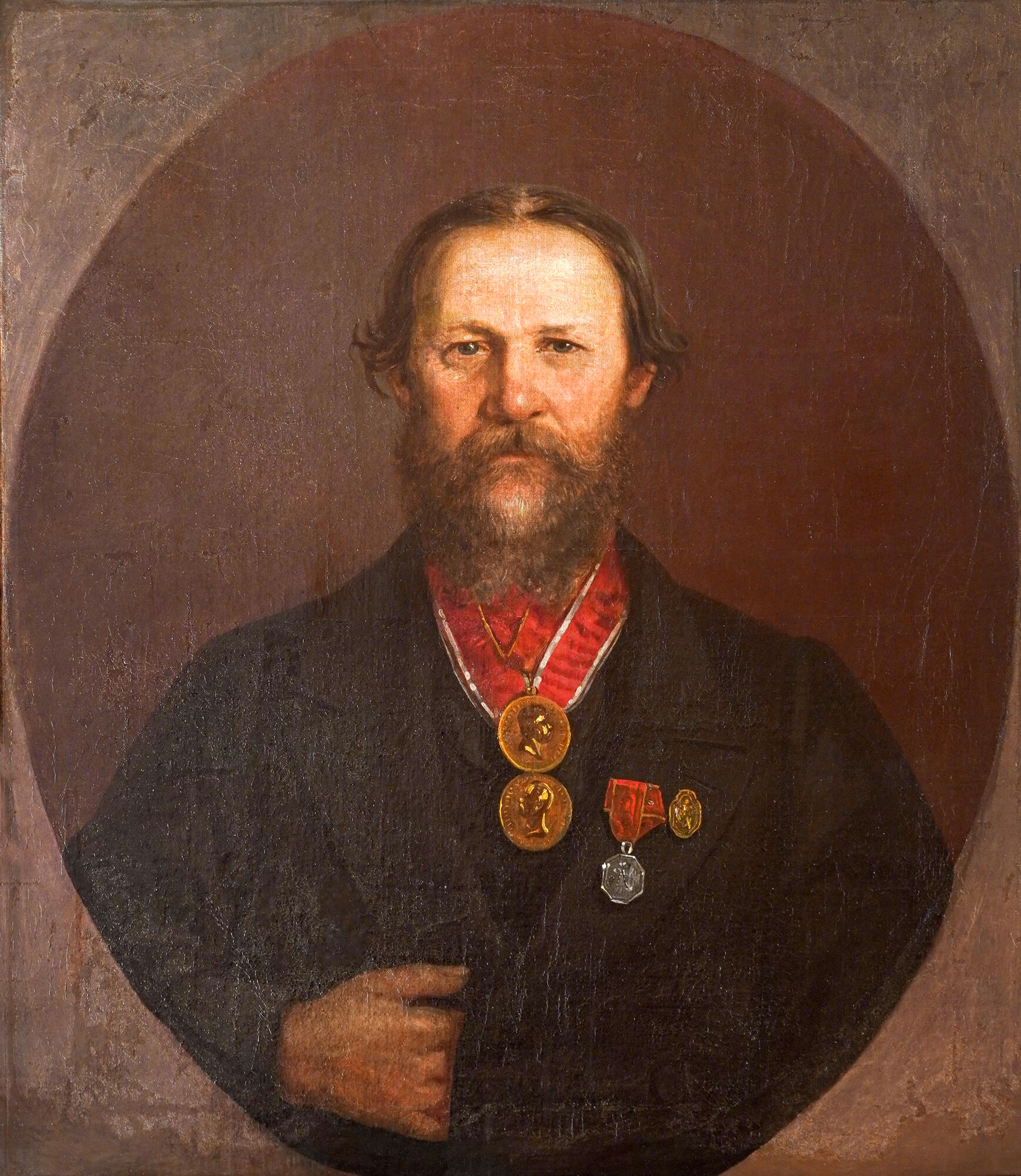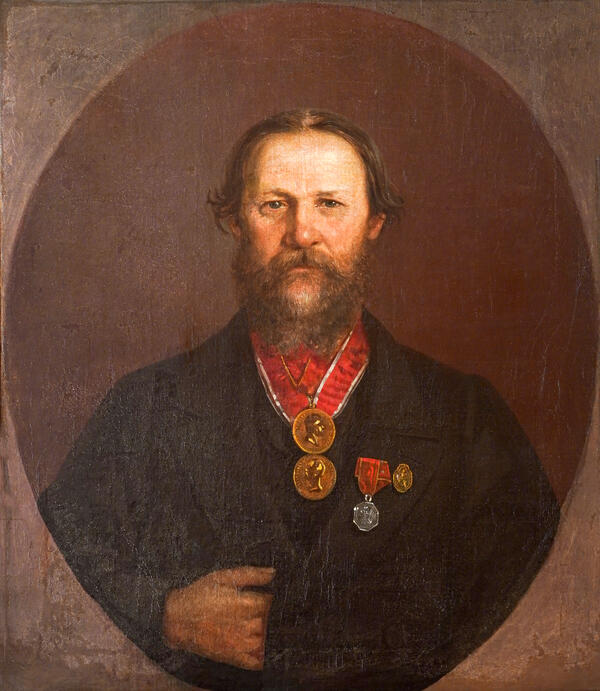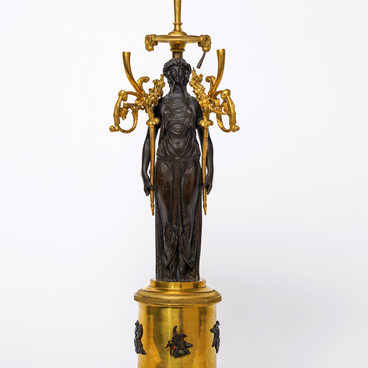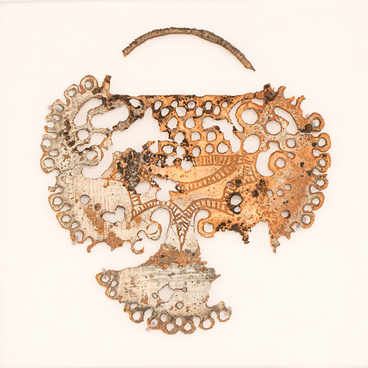Russian classical literature provides a fairly complete picture of a merchant. A merchant in Russia differed considerably from a Western one: the Russian merchant was not only a tradesman, but also an industrialist, a ship owner, a broker, a creditor, a manager in a town magistrate and a patron of the arts. The “Kolomna Kremlin” Museum displays a portrait of the merchant Mikhail Fyodorovich Scherbakov painted by an unknown artist in the second half of the 19th century.
Mikhail Fyodorovich Shcherbakov came from the family of the founders of cotton mills (paper cotton factories) of Fyodor Kuzmich Scherbakov. His grandfather Kozma Stepanovich Scherbakov founded cotton mills in the village of Ozery in 1834. Together with his brothers, he established the “Fyodorov Scherbakov’s Sons Partnership” to produce textiles.
In Ozery, Mikhail Fyodorovich was busy with his factory business, but he felt a constant attraction to music. He graduated from the conducting department of the Moscow Conservatoire and obtained a diploma as a choir regent and conductor. He enjoyed teaching children in the choir he created in Ozery. He taught the children talented in music and singing from large and poor families, who worked for him at his factory. He founded a few choirs in Ozery.
In June 1892, when the All-Russian Volunteer Fire Society was established, Scherbakov turned to the Kolomna Town Council for permission to have his own fire brigade at the factory. Then he completed courses on organizing fire brigades, set up a volunteer brigade (druzhina) in Ozery, and became its fire chief. Scherbakov often wore a fireman’s uniform, a helmet, and a silver axe at his waist. And outside the house there was always a harnessed horse with a coachman on duty in the evening and at night. There were also courses for sisters of mercy run by the fire brigade.
After February and October 1917, Scherbakov had no intention of going anywhere during the revolutionary turmoil. The factories continued to operate despite the devastation. Fire brigades were reinforced at the warehouses. Looting at the factory was curbed in every possible way. When nationalization was announced, Scherbakov himself came straight to the meeting of the Executive Committee of Ozery Council and pulled out of his valise all the documents on the transfer of his factories to the new owners. At his request, he was allowed to continue working at the factory as head of the housekeeping department and the fire brigade.
Mikhail Fyodorovich Shcherbakov came from the family of the founders of cotton mills (paper cotton factories) of Fyodor Kuzmich Scherbakov. His grandfather Kozma Stepanovich Scherbakov founded cotton mills in the village of Ozery in 1834. Together with his brothers, he established the “Fyodorov Scherbakov’s Sons Partnership” to produce textiles.
In Ozery, Mikhail Fyodorovich was busy with his factory business, but he felt a constant attraction to music. He graduated from the conducting department of the Moscow Conservatoire and obtained a diploma as a choir regent and conductor. He enjoyed teaching children in the choir he created in Ozery. He taught the children talented in music and singing from large and poor families, who worked for him at his factory. He founded a few choirs in Ozery.
In June 1892, when the All-Russian Volunteer Fire Society was established, Scherbakov turned to the Kolomna Town Council for permission to have his own fire brigade at the factory. Then he completed courses on organizing fire brigades, set up a volunteer brigade (druzhina) in Ozery, and became its fire chief. Scherbakov often wore a fireman’s uniform, a helmet, and a silver axe at his waist. And outside the house there was always a harnessed horse with a coachman on duty in the evening and at night. There were also courses for sisters of mercy run by the fire brigade.
After February and October 1917, Scherbakov had no intention of going anywhere during the revolutionary turmoil. The factories continued to operate despite the devastation. Fire brigades were reinforced at the warehouses. Looting at the factory was curbed in every possible way. When nationalization was announced, Scherbakov himself came straight to the meeting of the Executive Committee of Ozery Council and pulled out of his valise all the documents on the transfer of his factories to the new owners. At his request, he was allowed to continue working at the factory as head of the housekeeping department and the fire brigade.



